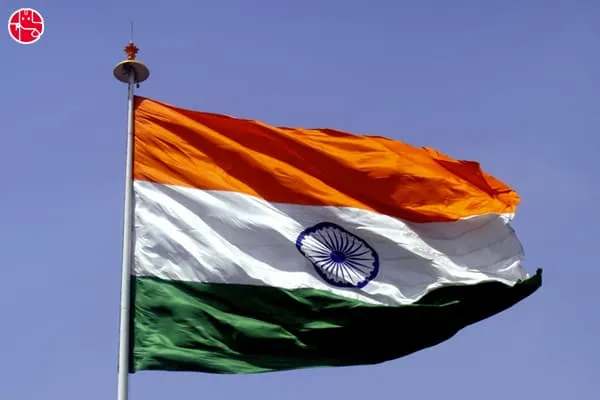Colours make our lives, well, colourful, beautiful and lively. The world would surely have been a dull place, if there had been no colours in it.
And, it’s just not about the aesthetics that colours are so important to our lives and experiences. Colours are all around us, wherever we look, and they certainly fill our lives with meaning.
Colours lend a distinct personality to almost everything, as we tend to associate various emotions, feelings and attributes with various colours. There are hot shades, pastel tints and sublime hues—there are so many variations and alterations to colours that they so effortlessly fill our lives—with depth and profundity. The chief purpose of any nation is to elevate the socio-economic conditions of its citizens. This means the citizens should grow personally and professionally with the nation. Do you want to know about your career’s growth? You can do it by accessing the 2023 Career Report.
Our National Flag is a riot of colours, and has a deep meaning to it. What is the real meaning behind the lovely Tricolour we Indians are proud of? On the 71st Independence Day of India, Ganesha looks at this perspective of our National identity. Read on….
The National Flag Of India
India became independent on the midnight of 14/15th August, 1947. A great deal of thinking went in choosing the colours for the revered Flag of the newly born nation. Freedom fighters and people, in general, spent a considerable time deliberating on colours and symbols to be adopted. The design of the National Flag of India was adopted by the India’s constituent assembly on 22nd July, 1947. India has traversed long miles since independence. Our nation has witnessed so many developments in the past and will witness many more in the future. Are you curious about your future? Buy the Detailed Life Report and know all about your life and future.
The Indian flag is a horizontal Tri-colour in equal proportion of deep saffron on the top, white in the middle and dark green at the bottom. The middle section i.e. white in colour has a Chakra (wheel) in the centre, in navy blue colour.
What Do The Colours, Symbols And State Of Affairs Indicate?
The first colour in the Indian flag is saffron. Saffron represents knowledge, courage, sacrifice, bravery and the spirit of renunciation.
The colour White occupies the central band on the Tricolour flag. This sublime colour represents purity and truth, freedom of expression, tolerance and moderation.
The Third and the last band on the Indian Tiranga is Green. This holy and cool colour represents the virtues faith and fertility, wealth and development. Mercury-ruled green colour also indicates the prosperity and richness that the country wishes to achieve, through its natural resources and commercial activities. India was largely a farming and trade oriented country, at the time of its independence, and that is also represented by the colour Green.
In the centre of the white band, there is a wheel in navy blue to indicate the Dharma Chakra, the wheel of law . This center symbol or the ‘CHAKRA’ has 24 spokes which intend to show that there is life in movement and death in stagnation.
The central Chakra in the Tiranga is known as the Ashoka Chakra, and may signify the sense of triumph. This Chakra may also imply a deep desire to rule everywhere around the world – Eka chakradipathya, to become super power.
The Ashoka Chakra on the flag is in blue colour with a White Backdrop. White signifies peace and blue signifies stability, persistence, which signifies growth in a respectable way. The symbol of Chakra also signifies keeping things in ‘momentum’, and hence a continual state of development.
Ashoka/ Dharma Chakra in Navy Blue also fortifies the basic principles, which were practised and are said to have
The Astro Implications
Saffron – the colour of Mars and Fire Element – signifies strength, courage, force and grandeur. In some ways, this colour is also close to Yellow hues, and thus may also be attributed to the good qualities of the planet of Jupiter – thus, manifesting the virtues of generosity, spirituality and higher learning.
Green – the colour of Mercury – signifies logic, intellect, clarity of expression and an unabated flow of ideas.
White – the colour of Moon – associated to Mother. India is our Motherland. Moon also governs the mind and emotions, and white is thus a good colour, as it signifies rootedness in culture and tradition.
Although Astrology reads most of the colour significations on the Indian Tricolour as auspicious, there are certain negative implications too, as per Astrology.
In the flag there is a combination of Green ruled by Mercury and White ruled by Moon. As per Vedic astrology a combination of Mercury and Weak Moon is considered as inauspicious. Moon rules the mind. If the Moon is afflicted, it represents chaos and confusion. Perpetual crisis due to fickle minded rulers may also be one of the manifestations. Constant trends of hypocrisy, paranoia and divides (basis religion, caste etc) are, thus, symbolised in the flag.
The Saffron colour and the Ashoka Dharma Chakra, however, are the redeeming factors in the Indian Tricolour. They both are extremely positive, and will continue to cast a positive spell for the nation’s growth, amidst all the chaos, even in the times to come.
May God bless our country with peace, prosperity and happiness. Happy Independence Day!
With Ganesha’s Grace,
The GaneshaSpeaks Team
For Instant Solutions! Talk To Astrologer Now.
